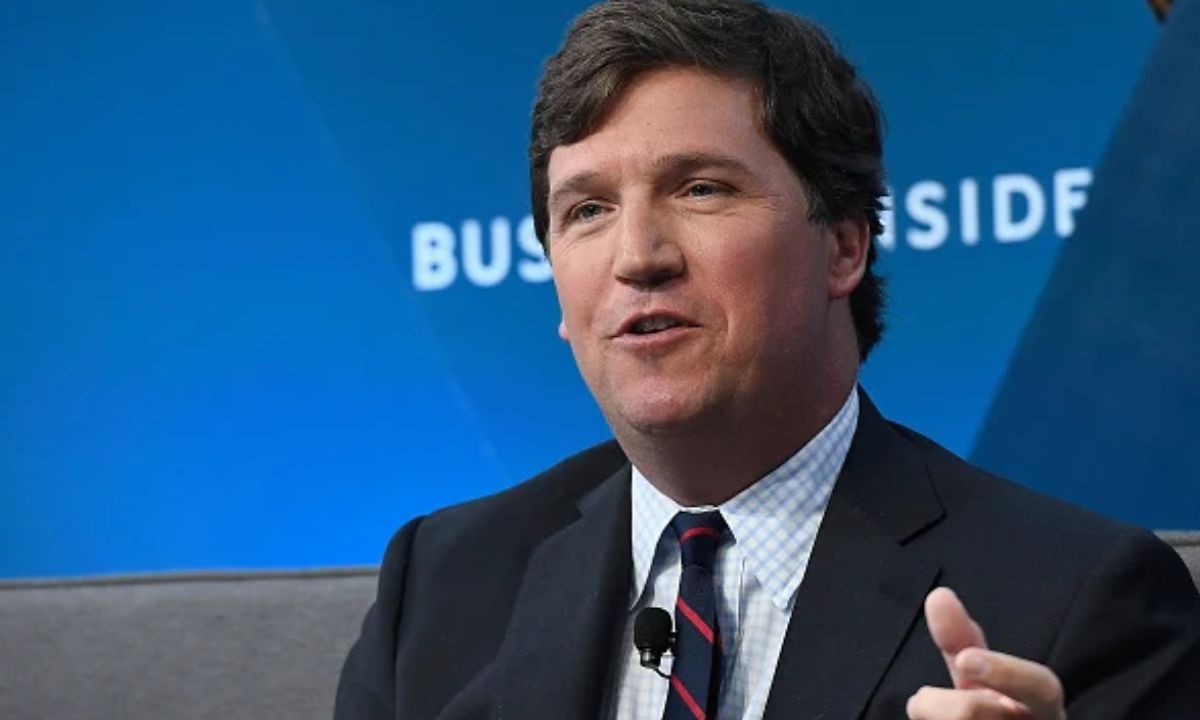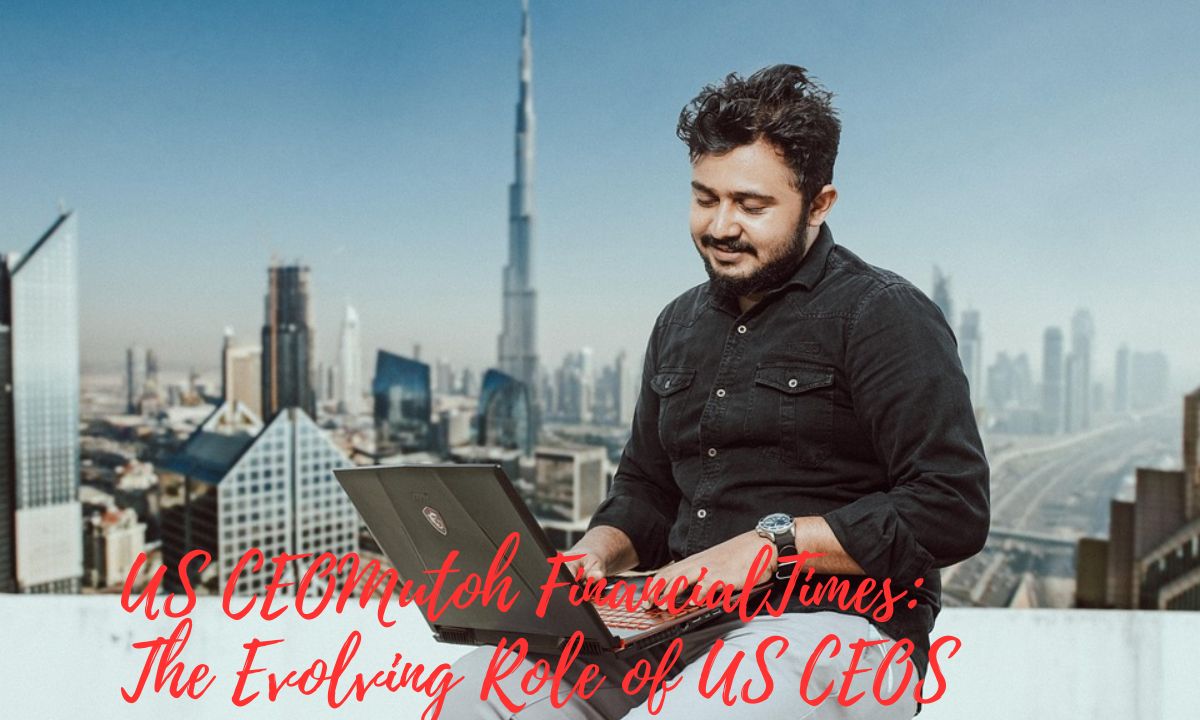The Financial Times tracks how US CEOs navigate an increasingly complex business landscape where financial performance meets global responsibility.
Modern corporate leadership requires balancing traditional stakeholder interests with emerging demands for sustainability and strategic vision.
Today’s CEOs face unprecedented challenges in corporate governance while driving economic trends through their decision-making in global markets.
The Changing Role of the U.S. CEOs
The transformation of CEO leadership reflects broader shifts in economic trends and stakeholder expectations.
Today’s CEOs must balance traditional financial performance metrics with corporate social responsibility initiatives.
This evolution has redefined their role from pure profit-focused executives to strategic visionaries responsible for long-term sustainability.
The Financial Times: A Window Into CEO Leadership
The Financial Times serves as a crucial platform for understanding corporate strategy and geopolitical impacts on business.
Through its comprehensive financial reporting, it provides invaluable insights into how CEOs navigate regulatory compliance and shareholder expectations. This coverage shapes both public perception and corporate decision-making processes.
CEO Impact on Global Markets

Modern CEOs significantly influence global markets through their strategic vision and corporate governance decisions.
Their actions ripple across the business landscape, affecting everything from market valuations to international trade relationships. This increased influence comes with heightened accountability to various stakeholders.
CEO Performance and Financial Metrics
Today’s performance evaluation extends beyond traditional financial metrics. While shareholders still focus on bottom-line results.
They increasingly consider sustainability initiatives and corporate social responsibility efforts. This holistic approach to measuring success reflects the evolving expectations placed on corporate leadership.
Global Expansion and the CEO’s Role in Strategic Vision
As companies pursue global expansion, CEOs must develop comprehensive strategic visions that account for diverse market conditions and regulatory environments.
This requires balancing local market needs with global corporate strategy, while maintaining consistent governance standards across all operations.
CEO Accountability and Corporate Governance
Modern corporate governance demands unprecedented transparency and accountability from CEOs. Their decision-making processes face scrutiny from shareholders, regulators, and the public.
This heightened oversight has led to more robust governance frameworks and reporting structures.
The Future of CEO Leadership
CEOs are rapidly shifting from traditional financial performance metrics to embrace strategic vision in a digital age.
The modern business landscape demands leaders who can balance global markets with strong corporate governance and stakeholder interests.
Tomorrow’s corporate leaders must excel at decision-making that considers both sustainability and economic trends while maintaining accountability to shareholders.
Digital Transformation and Strategic Vision
Modern CEOs must integrate technological innovation into their corporate strategy. The business landscape increasingly demands leaders who can navigate digital transformation while maintaining strong financial performance.
This requires a delicate balance between investment in new technologies and traditional business metrics that shareholders monitor closely.
Stakeholder Management in a Global Context
In today’s interconnected global markets, CEOs face unprecedented challenges in stakeholder management.
Their decision-making must account for diverse interests across different regions while maintaining consistent corporate governance standards.
The Financial Times regularly reports on how leading executives navigate these complex relationships.
Environmental and Social Governance
Sustainability has become a cornerstone of modern corporate leadership. CEOs must demonstrate their commitment to environmental stewardship while meeting financial performance targets.
This dual responsibility shapes both strategic planning and daily operations, with increasing accountability to stakeholders for environmental impacts.
Trends in CEO LeadershipEmerging

Top CEOs are reshaping their corporate strategy to adapt to rapidly evolving global markets and geopolitical challenges.
Financial performance now depends heavily on successful regulatory compliance and cross-border stakeholder management.
Strategic vision in modern leadership increasingly focuses on balancing financial reporting demands with sustainable business practices.
Cross-Border Collaboration
Global expansion requires sophisticated approaches to international partnerships. CEOs must develop frameworks for cross-cultural collaboration while ensuring regulatory compliance across multiple jurisdictions. This complexity adds new dimensions to traditional corporate strategy development.
Risk Management in a Volatile World
The geopolitical landscape presents unique challenges for corporate leadership. CEOs must anticipate and respond to international tensions, trade disputes, and regulatory changes that can impact their global markets. Their strategic vision must incorporate robust risk management frameworks.
Innovation and Competitive Advantage
Maintaining market leadership requires continuous innovation. CEOs must balance investment in research and development with immediate financial reporting obligations. This tension between long-term strategic planning and short-term performance metrics defines modern corporate leadership.
Building Sustainable Organizations
Modern corporate strategy increasingly focuses on building organizations that balance financial performance with long-term sustainability.
CEOs must demonstrate strong leadership in implementing corporate governance frameworks that satisfy both shareholders and broader stakeholder demands.
Strategic vision now requires creating resilient business models that can adapt to global markets while maintaining corporate social responsibility.
Long-term Value Creation
Modern CEOs focus increasingly on sustainable value creation rather than quarterly profits alone. This shift reflects evolving stakeholder expectations and recognition that long-term success requires balanced attention to financial performance and corporate social responsibility.
Organizational Resilience
The ability to adapt to changing business landscapes has become crucial. CEOs must build resilient organizations capable of withstanding market volatility while maintaining consistent growth. This requires sophisticated approaches to corporate governance and risk management.
Talent Development and Retention
Success in global markets depends increasingly on human capital. CEOs must prioritize talent development as part of their strategic vision, recognizing that skilled employees drive innovation and sustainable growth.
Impact of Media Coverage

The Financial Times significantly influences CEO decision-making through its comprehensive coverage of corporate strategy and global markets.
Media reporting shapes how stakeholders evaluate leadership performance and financial metrics in the business landscape.
CEOs must carefully manage their public communications as their statements can directly impact market trends and corporate governance perceptions.
The Role of Financial Reporting
The Financial Times and similar publications play a crucial role in shaping market perceptions. Their coverage influences how stakeholders evaluate CEO performance and corporate strategy, making media relations an essential component of modern leadership.
Transparency and Communication
Effective CEOs must master both internal and external communication. Regular engagement with financial media helps build trust with shareholders and broader stakeholder groups, supporting strong corporate governance practices.
Market Influence and Responsibility
The increasing influence of CEO statements on global markets brings additional responsibility. Leaders must carefully consider the timing and content of their public communications, recognizing their potential impact on market stability.
ALSO READ THIS BLOG: Aggr8Finance: Your Guide to Personal Finance Updates
Frequently Asked Questions
What is US CEOMutoh FinancialTimes?
A comprehensive source for analysis of CEO leadership and corporate strategy in global markets.
How does the Financial Times influence CEO decisions?
Through in-depth financial reporting and analysis of economic trends that inform strategic decision-making.
Why are U.S CEOs featured in the Financial Times?
Their significant impact on global markets and corporate governance makes them crucial subjects for financial reporting.
What topics do US CEOMutoh FinancialTimes cover?
Coverage spans financial performance, strategic vision, corporate social responsibility, and global expansion strategies.
How do the U.S. CEOs affect global markets?
Through strategic decisions that influence market trends, stakeholder relations, and international business practices.
What is the role of financial media like the Financial Times?
To provide critical analysis of corporate leadership, geopolitical impacts, and regulatory compliance in the global business landscape.
Conclusion
The evolving role of CEOs reflects fundamental changes in the business landscape. Success now requires mastering both traditional financial performance metrics and newer challenges like sustainability and corporate social responsibility. The Financial Times continues to play a crucial role in documenting and analyzing these changes.

David is a seasoned SEO expert with a passion for content writing, keyword research, and web development. He combines technical expertise with creative strategies to deliver exceptional digital solutions.















